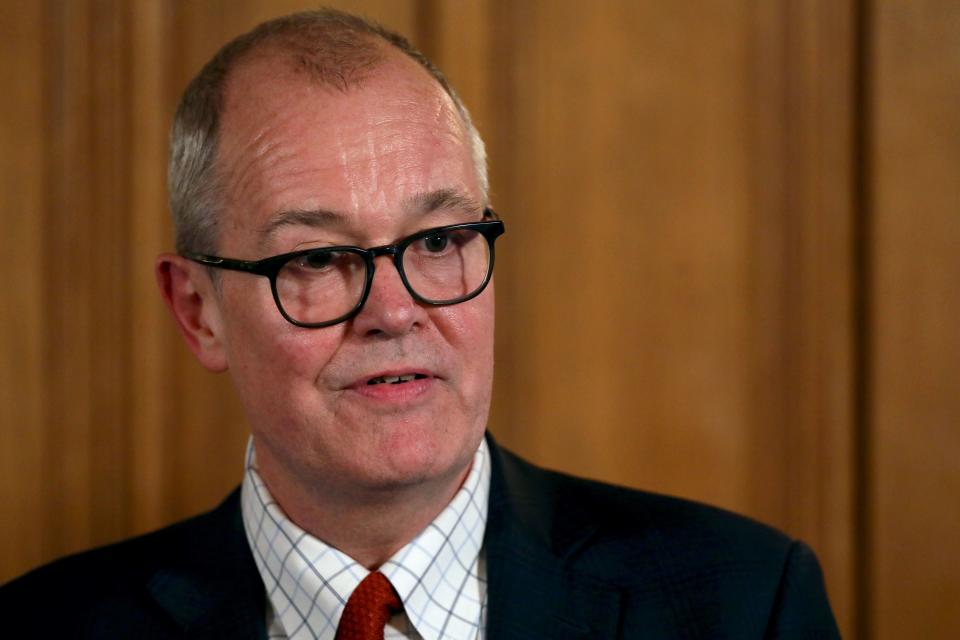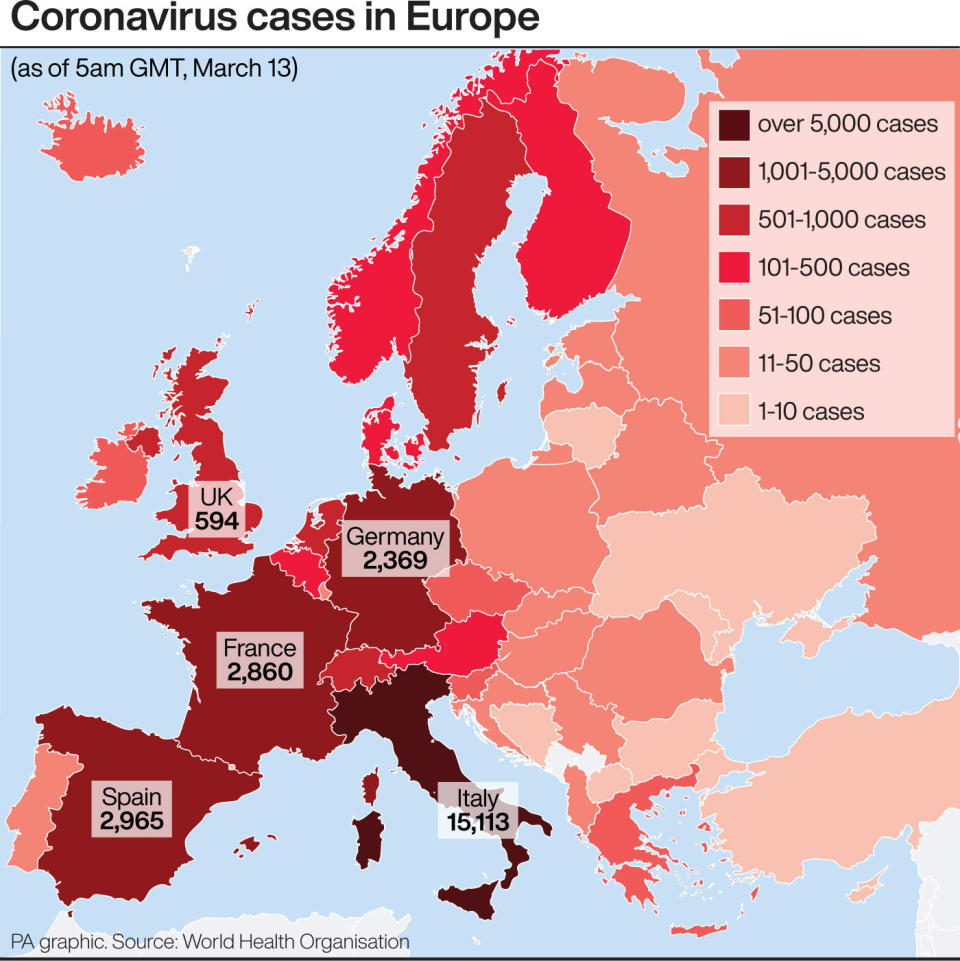Downing Street defends measures to combat coronavirus spread after criticism from Jeremy Hunt

Downing Street has defended the government’s measures to tackle to spread of coronavirus after coming under fire from critics including former health secretary Jeremy Hunt.
Hunt had criticised the approach, which saw new measures put in place on Thursday, saying they didn’t go far enough.
On Friday Downing Street said Boris Johnson had been briefed on the latest situation concerning the coronavirus outbreak by the chief medical officer and the chief scientific adviser.
In response to Hunt’s criticism, the Prime Minister’s official spokesman said: “We are very clear where we take our advice from. That is from the chief scientific adviser and the chief medical officer.
“Our aim is to reduce the peak of the outbreak so the NHS will be in stronger state as the weather improves.”
Latest coronavirus news, updates and advice
Live: Follow all the latest updates from the UK and around the world
Fact-checker: The number of Covid-19 cases in your local area
Explained: Symptoms, latest advice and how it compares to the flu
Earlier, the UK’s chief scientific adviser said some of the measures, including self-isolating for seven days, are “actually quite extreme” and are hoped to help create a “herd immunity” to the disease.
Sir Patrick Vallance told the BBC that the advice the government is following is not aiming to “suppress” the virus entirely but to help create a “herd immunity in the UK” while protecting the most vulnerable.

He said: “If you suppress something very, very hard, when you release those measures it bounces back and it bounces back at the wrong time.
“Our aim is to try and reduce the peak, broaden the peak, not suppress it completely; also, because the vast majority of people get a mild illness, to build up some kind of herd immunity so more people are immune to this disease and we reduce the transmission, at the same time we protect those who are most vulnerable to it.
“Those are the key things we need to do.”
On Thursday Boris Johnson announced that the UK is moving to the ‘delay’ phase of its strategy to tackle the spread of the virus and said anyone with any symptoms such as a continuous cough or high temperature, must stay at home for seven days.
The Prime Minister said school trips abroad should be stopped while people over 70 with serious medical conditions should not go on cruises, but stopped short of banning large-scale public events.
Some experts welcomed the measures but Hunt said he was surprised by the measures amid what he dubbed a “national emergency”.

Asked about the decision not to cancel large gatherings yet, he told BBC Newsnight: “I think it is surprising and concerning that we’re not doing any of it at all when we have just four weeks before we get to the stage that Italy is at.
“You would have thought that every single thing we do in that four weeks would be designed to slow the spread of people catching the virus.”

 Yahoo News
Yahoo News 

